This article gives you an overview of our swimming drills to learn to swim the front crawl / freestyle stroke.
The swimming drills have an increasing difficulty and teach you one skill at a time. This allows you to learn the front crawl by yourself at your own pace.
The drills teach you concepts such as keeping your balance in the water, making your body as tall as possible, swimming on your sides, etc. which are important if you want to master an effective swimming technique.

If you learn and practice the drills in the suggested order, you should be able to learn how to swim the front crawl stroke easily and enjoy the experience.
Learn the Flutter Kick
Learn How To Do The Flutter Kick: Learning the flutter kick in a prone position is an important prerequisite to master if you want to learn how to swim the front crawl.
This article covers a few exercises to learn this important swimming technique in a simple way.
Balance Drills
Having balance means that you are able to stay horizontal in the water with ease to minimize drag and save energy.
The next set of drills let you practice this skill.
Head-Lead Supine Balance
Head-Lead Supine Balance: This front crawl swimming drill introduces you to balance by letting you practice on the back to avoid breathing issues.
Head-Lead Prone Balance
Head-Lead Prone Balance: This front crawl swimming drill is designed to teach you to balance in the water in a prone position (lying flat on your stomach).
This is a very good drill to learn how to keep your hips and legs close to the water surface with ease and without needing to kick hard.
Head-Lead Side Balance
Head-Lead Side Balance: In the front crawl stroke, spending more time swimming on the side makes you faster.
This is because when you roll more on the side, you can use the larger back muscles in addition to the shoulder muscles for propulsion.
However, because floating on the side in the water needs some getting used to, we use this drill to get comfortable in that position.
Head-Lead Nose Up / Nose Down
Head-Lead Nose Up / Nose Down: This swimming drill will teach you how to keep your balance in the water while rolling between different positions, face up and face down in this case.
This is an important front crawl skill to master so that you can maintain balance when you roll on the side to breathe.
Head-Lead Looking Down
Head-Lead Looking Down: In this drill, you will try to maintain horizontal balance while rolling from side to side. This lets you practice balance to a high degree.
Once you have mastered this drill you’ll have more balance than you’ll ever need in the front crawl stroke.
Hand-Lead Side Balance
Hand-Lead Side Balance: In the Head-Lead Side Balance drill, you learned that swimming front crawl more on your sides improved propulsion.
In this drill, you will assume the same position but you will extend one of your arms overhead.
This teaches you to make your body as long as possible in the water which reduces drag.
Hand-Lead Nose Up / Nose Down
Hand-Lead Nose Up / Nose Down: This swimming drill lets you practice balance floating on the side with one arm extended forward.
This is useful because you roll from side to side into this particular side position when you swim front crawl.
This drill also lets you practice dynamic balance, where you alternatively switch between a face-up and a face-down position.
Being able to maintain balance while rolling on the side is useful because you roll in a similar way to breathe in.
Switch Drills
The final set of swimming drills lets you transition into swimming front crawl. They teach you correct arm movements and coordination.
They are called switch drills because you switch sides after completing one drill cycle.
Under Switch
Under Switch: In this drill the arm recovery is done underwater.
This allows you to focus on and become aware of the synergy that exists between the arm movements and body roll while swimming front crawl.
Zipper Switch
Zipper Switch: This drill lets you focus on achieving a compact and efficient arm recovery. This allows you to decrease drag and save energy.
Over Switch
Over Switch: This is the last one of our front crawl drills. It lets you practice an early hand entry during the arm recovery.
This is to avoid the common tendency of overreaching during the recovery which for several reasons increases drag and can also lead to swimmer’s shoulder.
Once you have mastered this drill you will be ready to transition into swimming the full front crawl stroke.
Additional Drills
Vertical Kicking
Improve the Flutter Kick with Vertical Kicking: It could be that you struggle with our front crawl drills because your flutter kick isn’t propulsive enough.
Vertical kicking is a swimming drill that can help improve your kick.
Learning Path for the Front Crawl
Below is an overview of our series of articles on learning the front crawl. Each article in this series contains one or more drills that have to be mastered. The current article is highlighted:
Once you have gone through all the steps of this learning path, you should be able to swim front crawl without any problems.
Good luck!

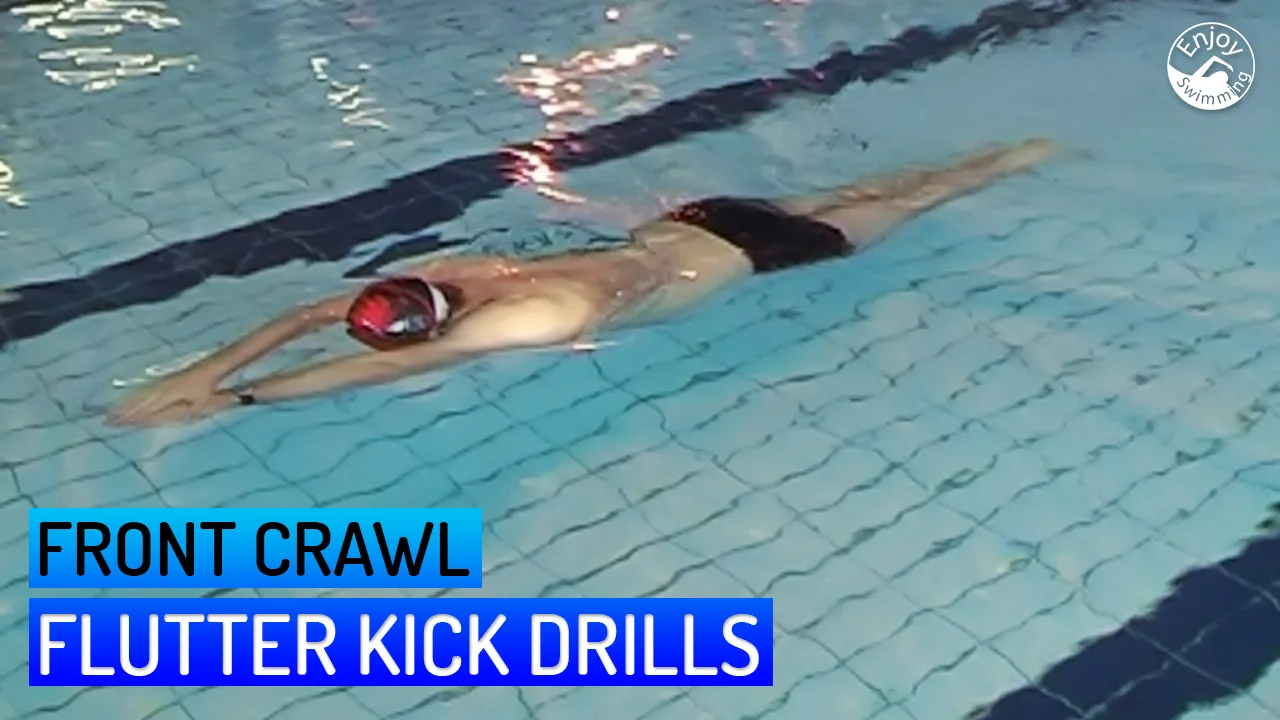
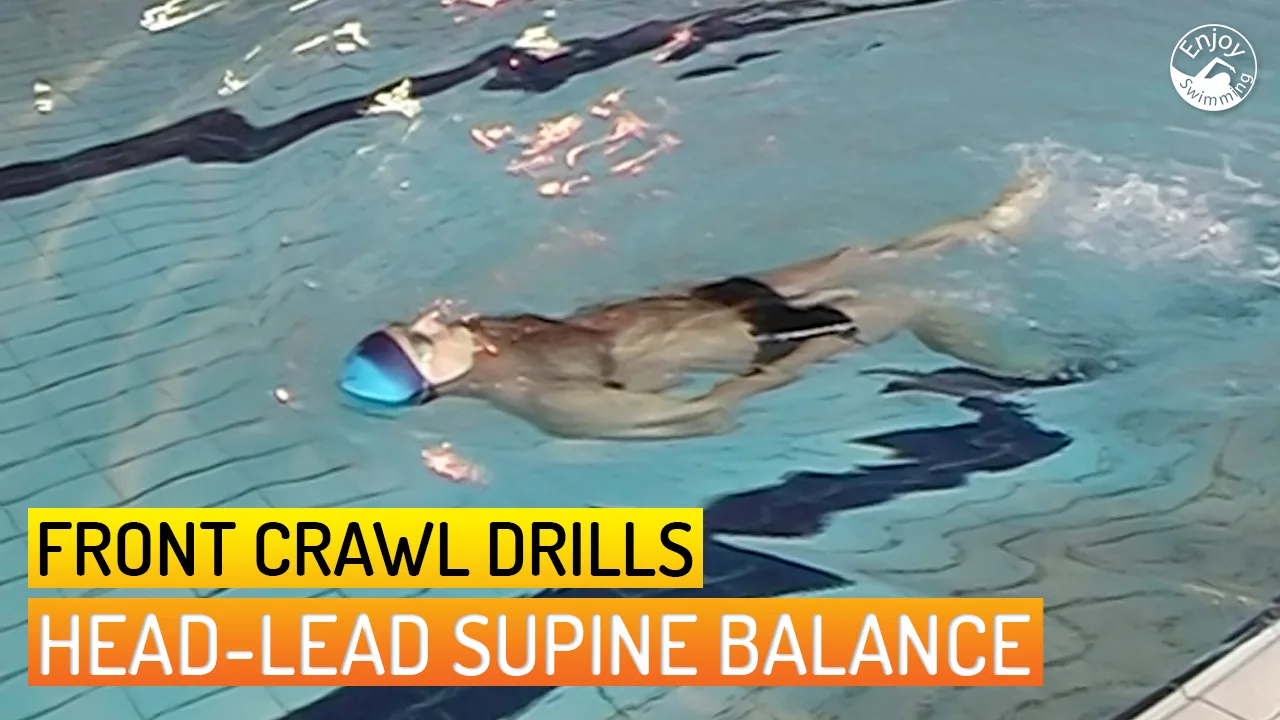
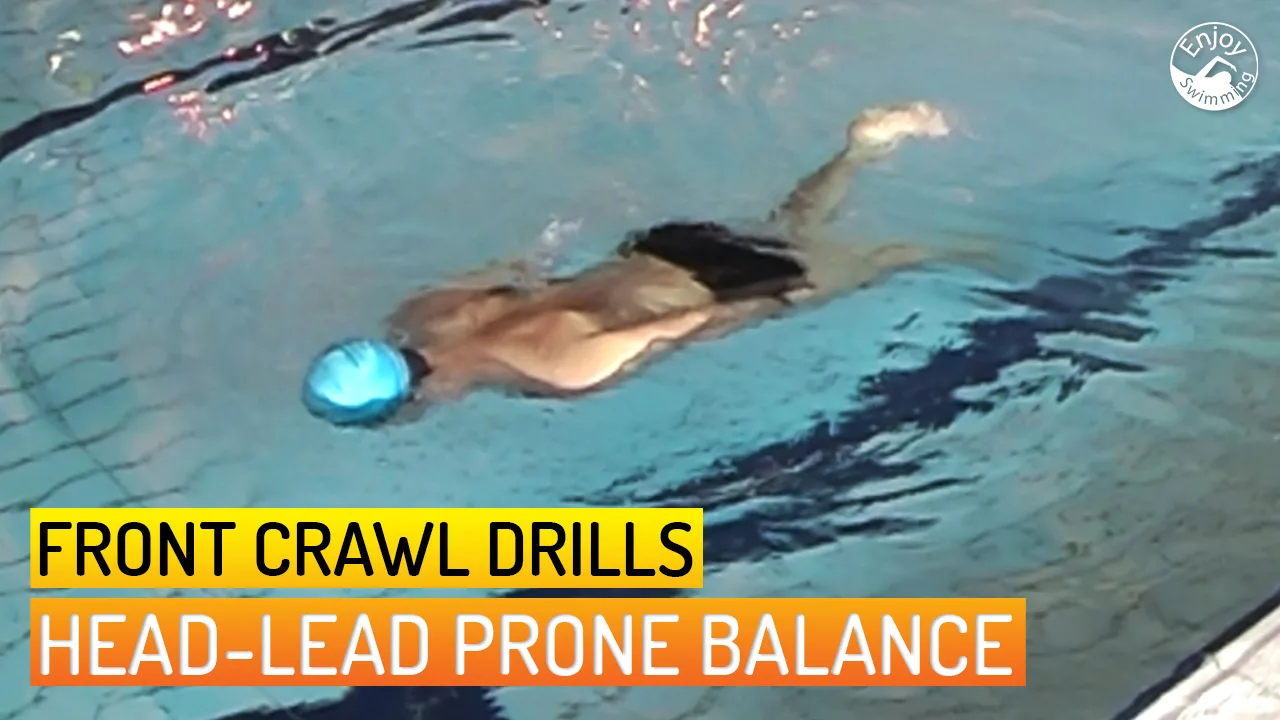
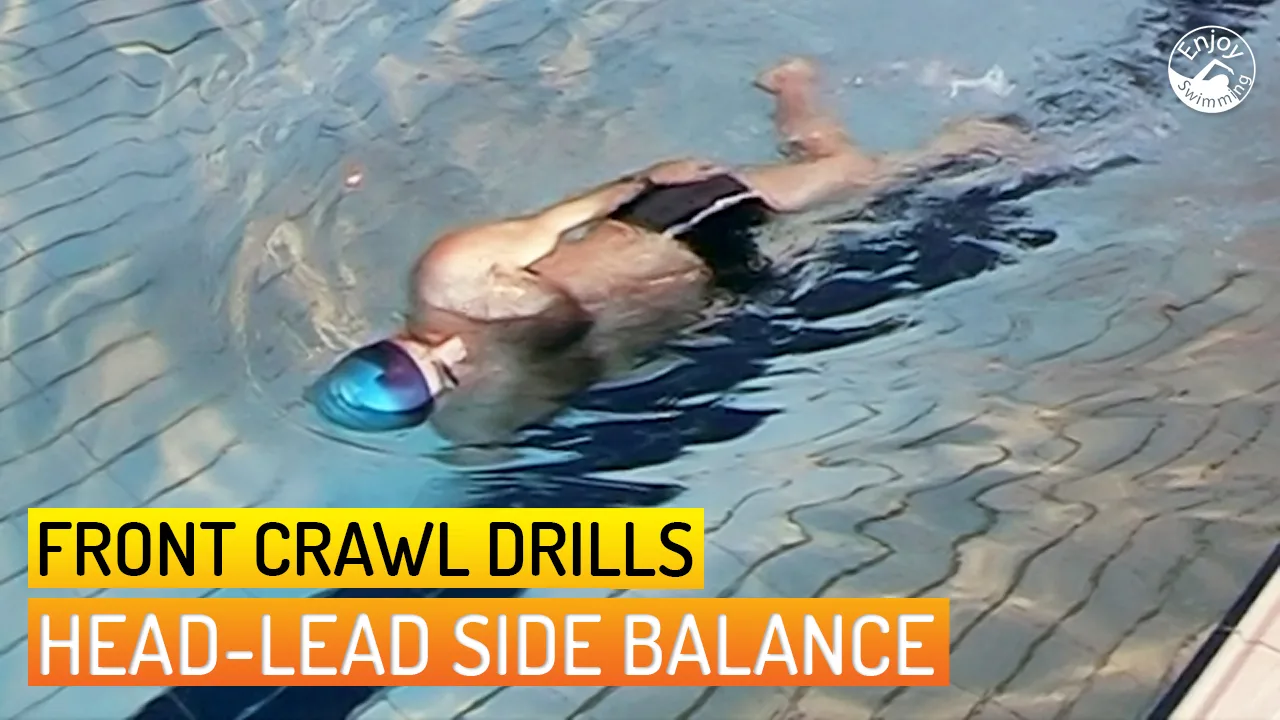
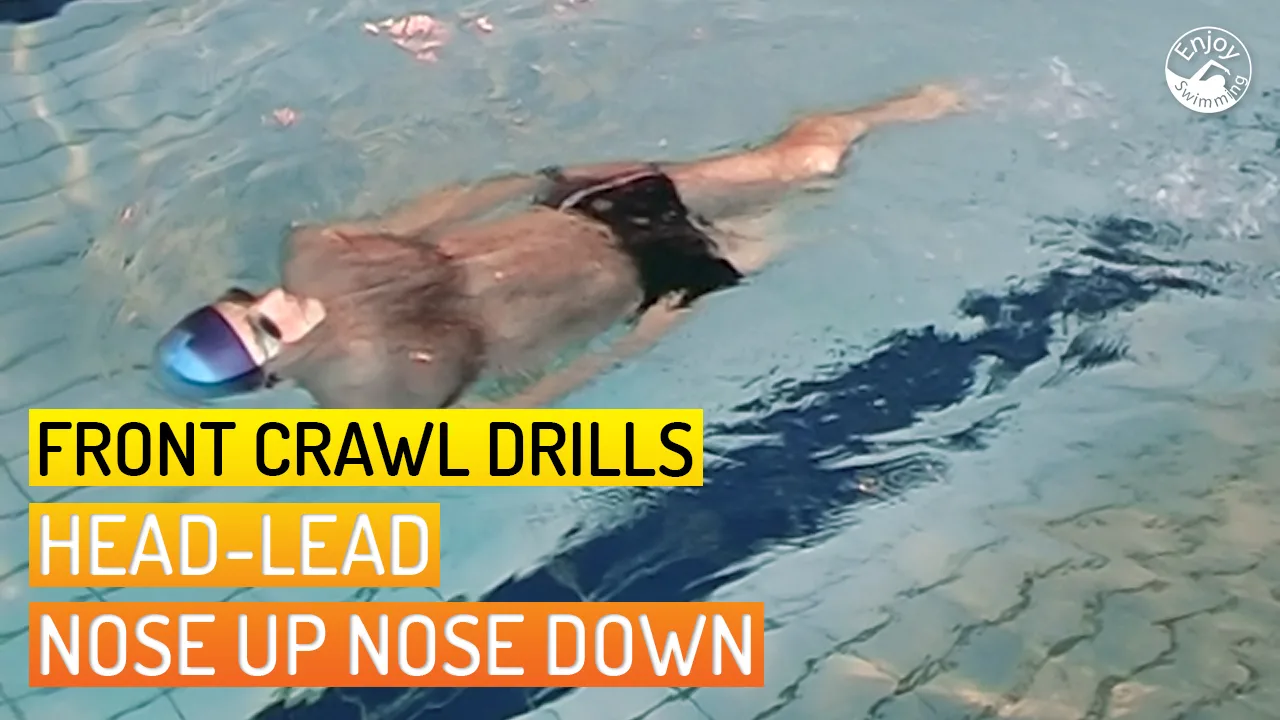
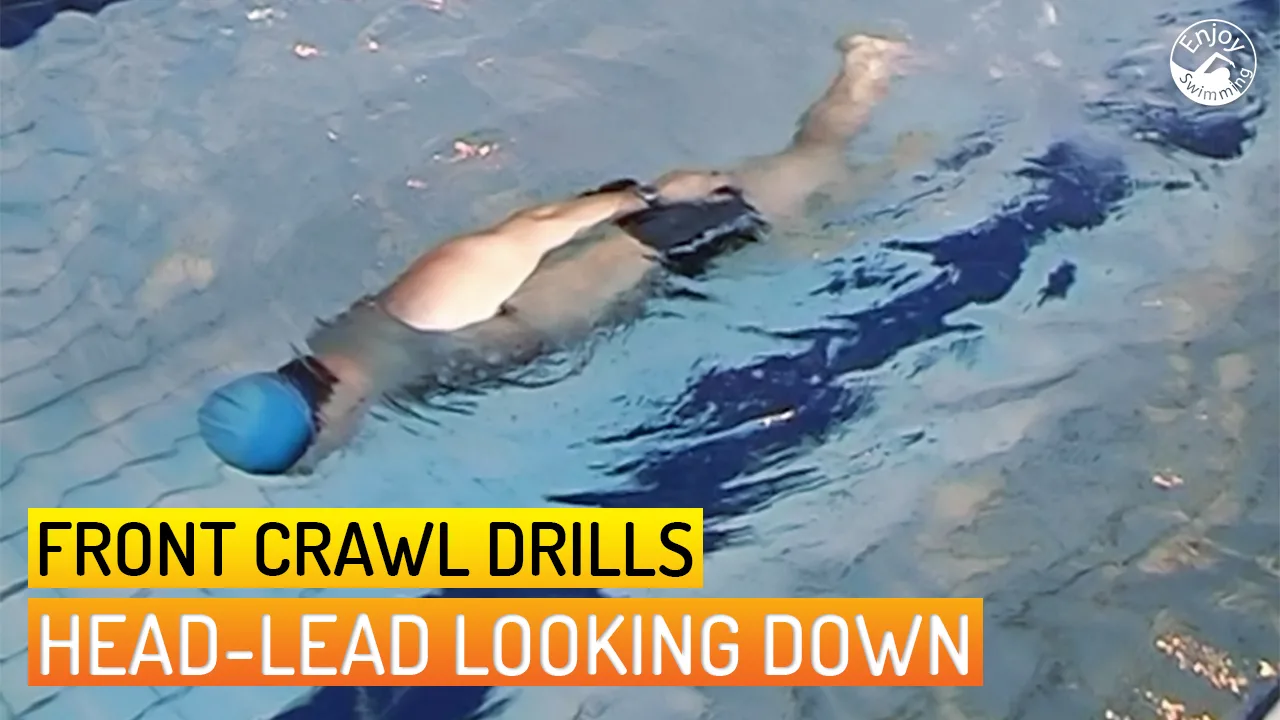
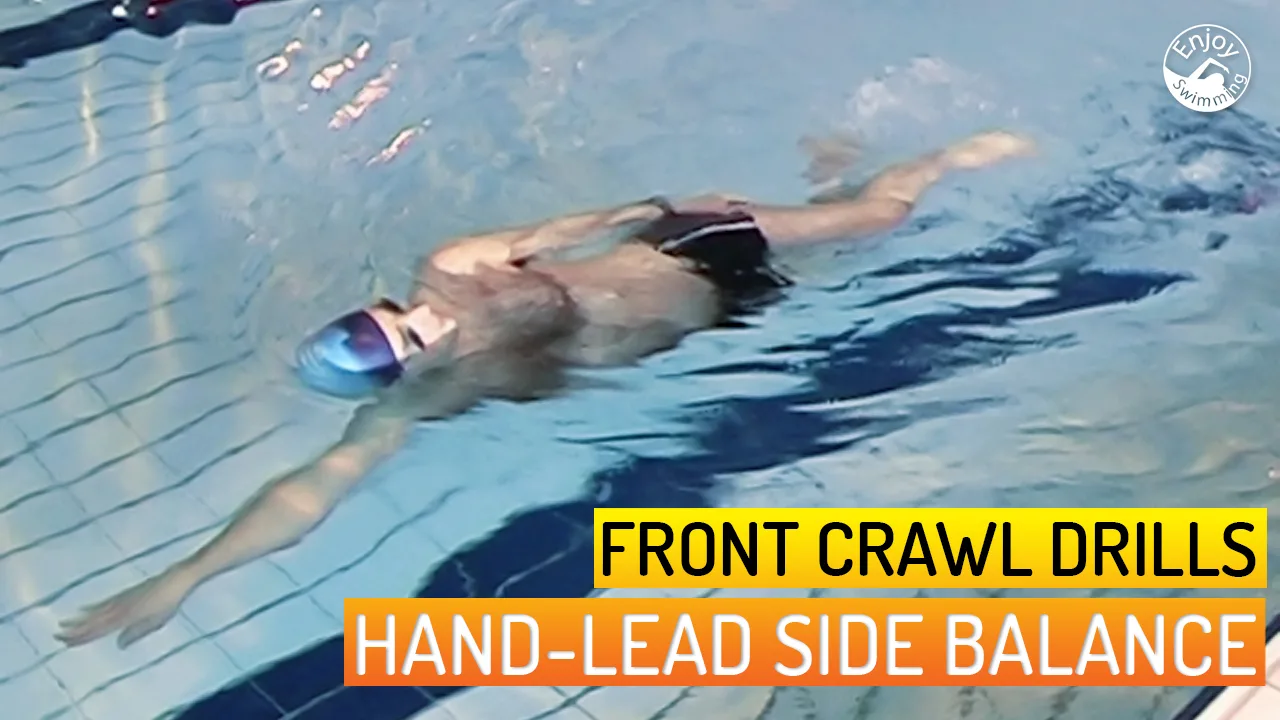
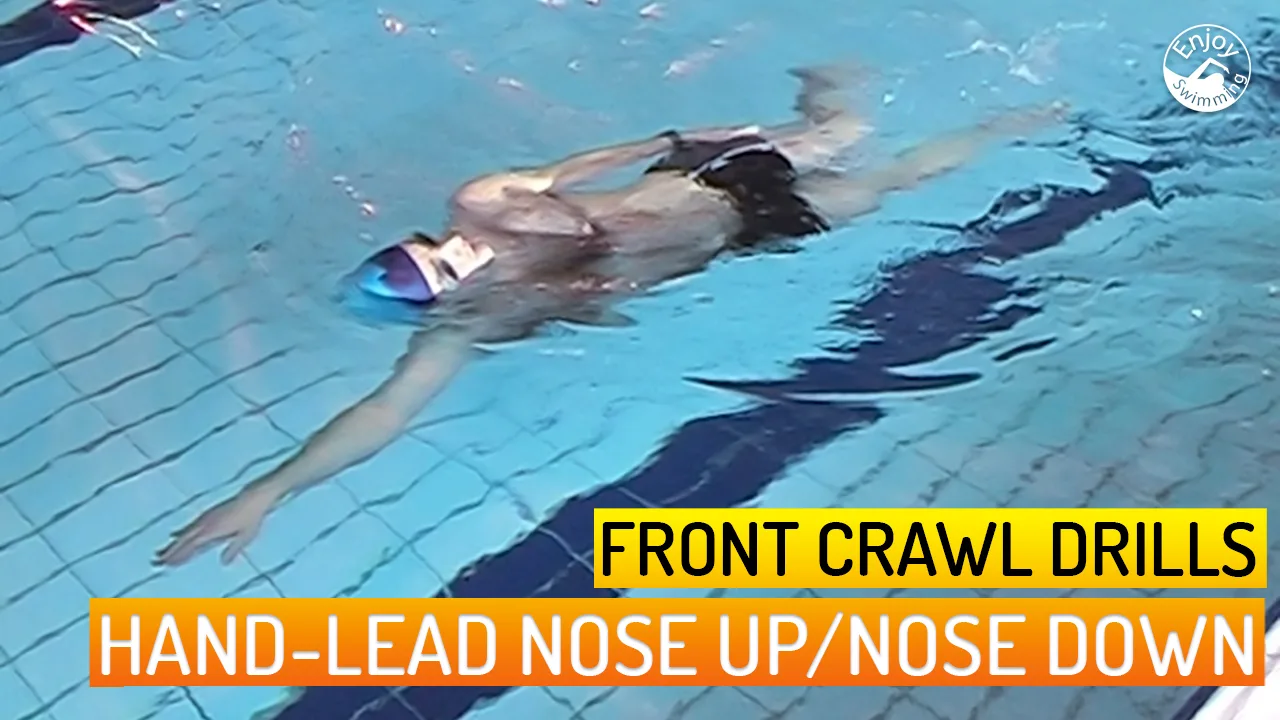
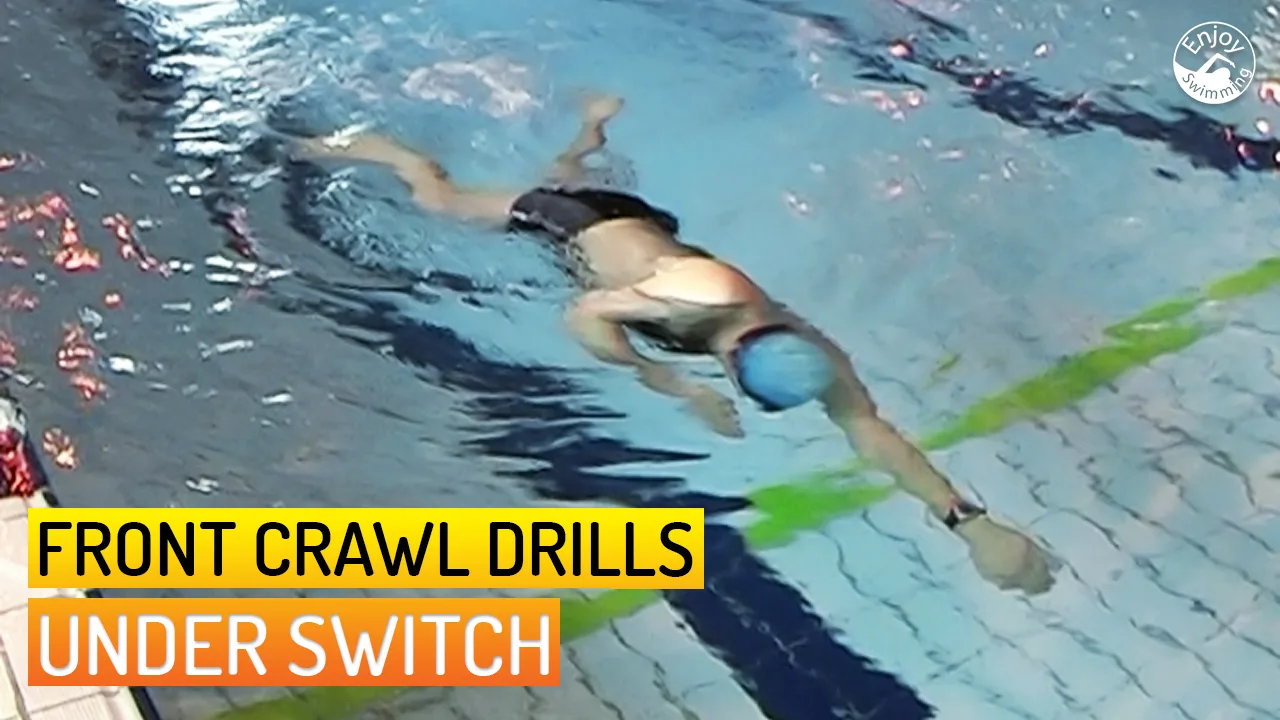
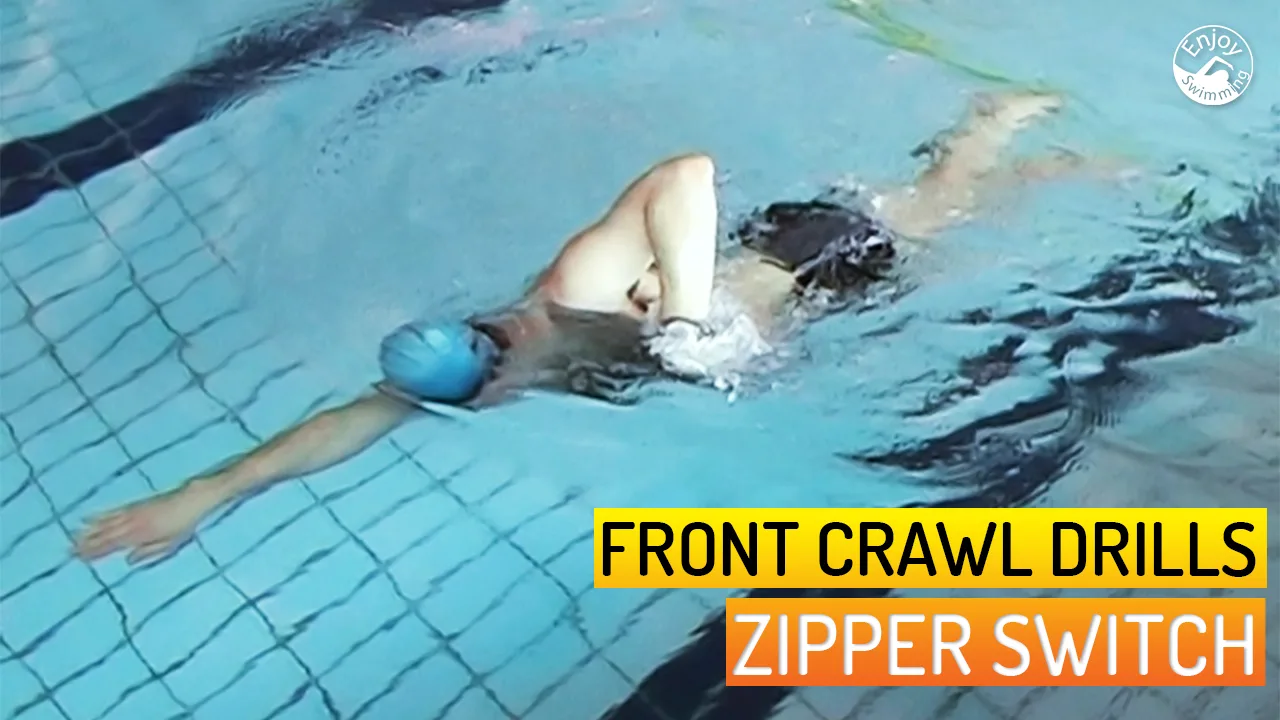
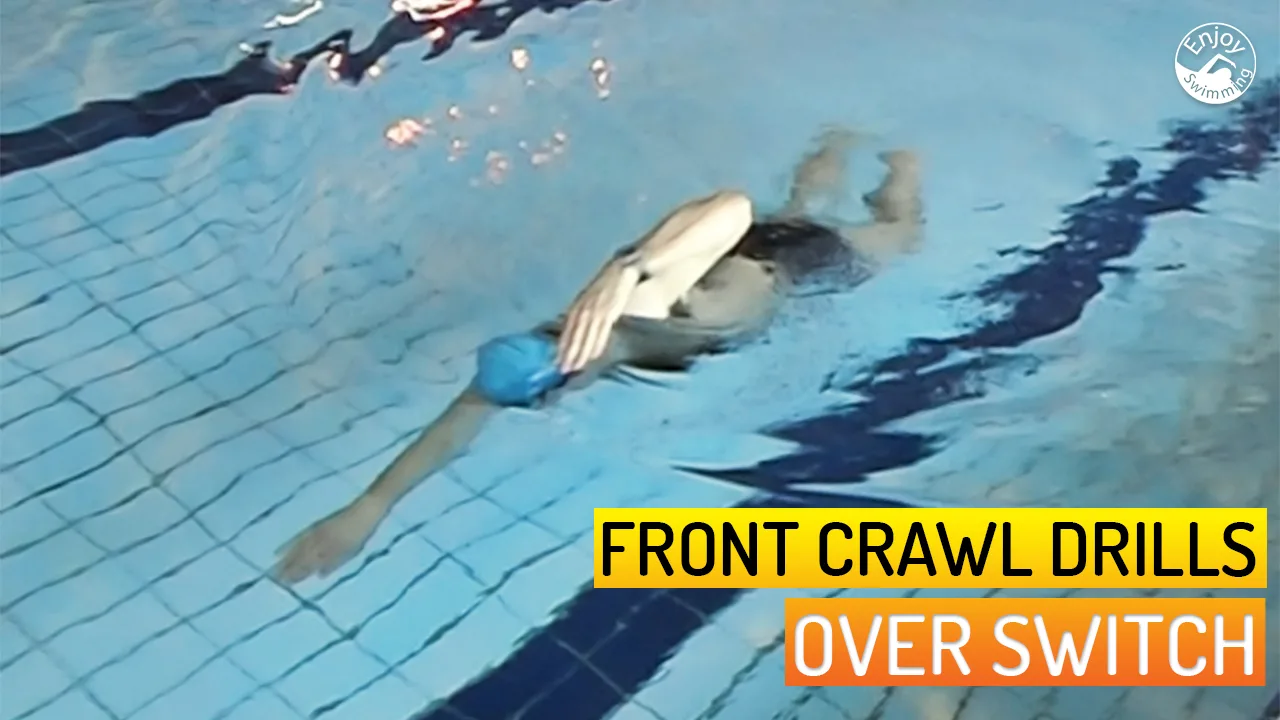
SANJAY
Monday 30th of September 2019
Your website is soo useful thanks for helping me help other swimmers
Christophe
Tuesday 1st of October 2019
Thanks Sanjay!
Paula Mhaldita
Thursday 16th of August 2018
I am watching this because I want to learn more swimming techniques!
Maina David
Thursday 14th of June 2018
Please, sir, I need more tutorials for beginners.
fill
Thursday 8th of December 2016
I read some swimming tutorials and in which they say that the way of body rotation in these videos is "over-rotation". Is that a serious problem?
Because I think if we don't care about speed, we can breathe in a way that's easy for us to feel relaxed, right?
Christophe
Thursday 8th of December 2016
Hi,
I don't know which video tutorials you are referring to, but generally people rotate too little rather than too much while swimming front crawl.
To breathe, the head should roll along the body and roll a little further to have the mouth clear the water. If you don't roll enough, you'll have to lift the head to be able to breathe, which disrupts balance and can cause your legs to drop.
Hope this helps.
Ahmed
Sunday 27th of November 2016
Hi.
I have been taking a lot of lessons (30 to be precise) to learn front crawl... and have yet not been able to manage the switches...
I just stand up after one switch or at the most at my second switch. I find it very difficult to continue moving forward (however hard I continue to kick/sometimes it's the exhalation problem!!)
I am on the verge of giving up to learn please help. Either there is something wrong with me or the swimming instructor...
Christophe
Monday 28th of November 2016
Hi Ahmed,
It is not clear why you stand up after the first/second switch? Are you out of breath?